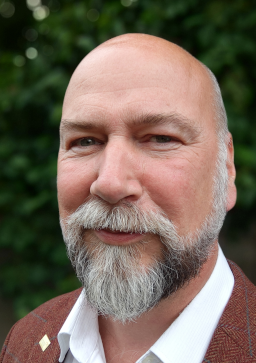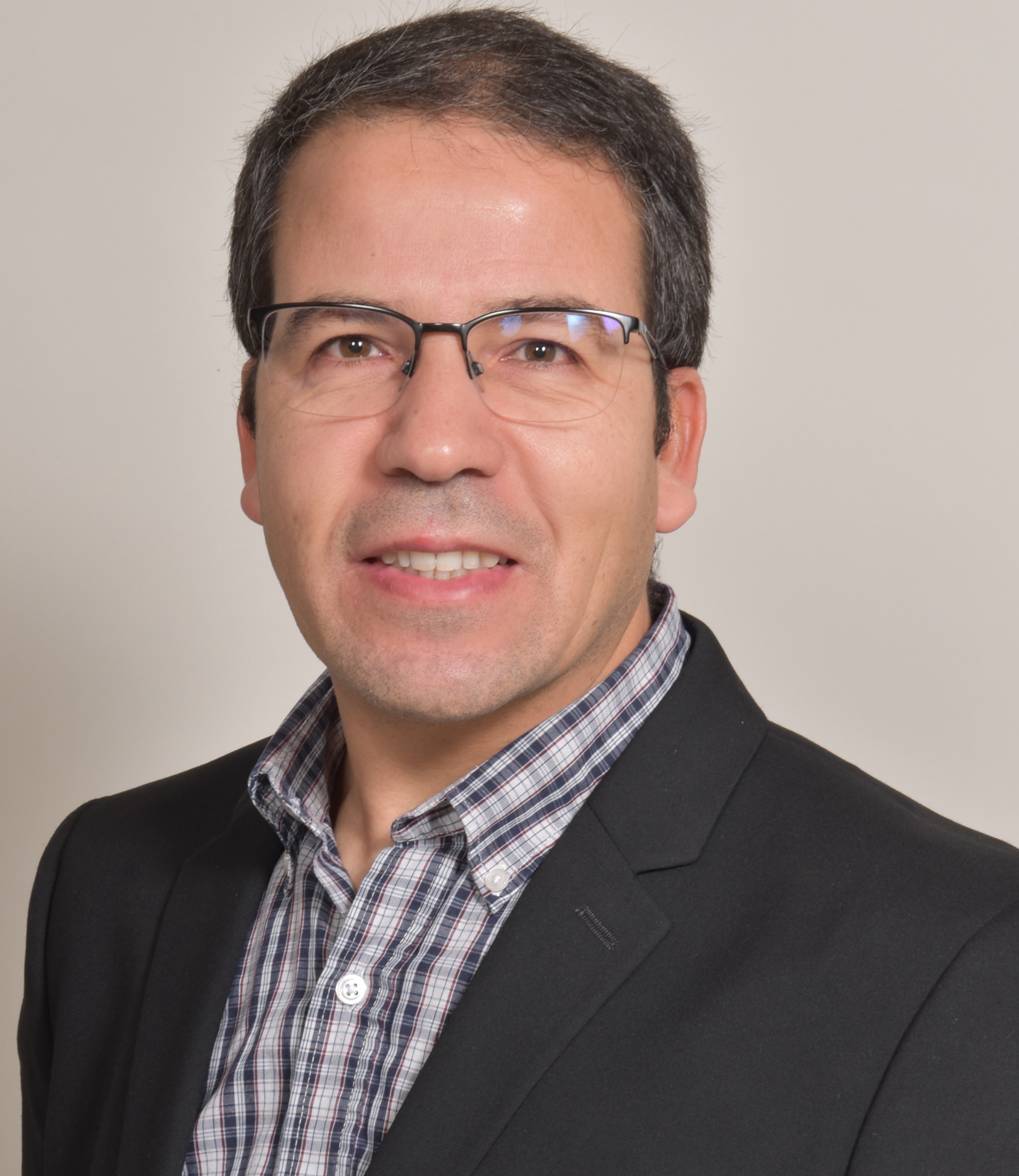
Professor Chenguang (Charlie) Yang, PhD, CEng
Fellow of IEEE, IET, IMechE, BCS, AAIA & HEA
Member of European Academy of Sciences and Arts
Department of Computing
The Hong Kong Polytechnic University
HKSAR, China
chenguang.yang@polyu.edu.hk
Title: Robot Control by Learning from Humans
Abstract: This
presentation will provide a broad overview of my research in robotics with a
focus on learning from Demonstration (LfD). LfD allows robots to acquire and
generalize task skills through human demonstrations, creating a seamless
integration of artificial intelligence and robotics. Most LfD approaches often
overlook the importance of demonstrated forces and rely on manually configured
impedance parameters. In response, my team has developed a series of biomimetic
impedance and force controllers inspired by neuroscientific findings on motor
control mechanisms in humans, enabling robots to imitate compliant manipulation
skills. The presentation also covers collaborative control strategies for
human-robot interaction, and long-horizon manipulation based on subgoal
planning. Tactile sensing designs, soft gripper designs, perception and mapping
methods, and advancements in dynamic SLAM and object tracking are also
included. Particularly, we designed anthropomorphic visual tactile sensors that
assess contact force, surface texture, and shape, to improve robot skill
learning through enhanced perceptual capabilities.
Biography: Professor Chenguang Yang (Charlie) received the B.Eng. in Measurement and Control Technology from Northwestern Polytechnical University, China, and the Ph.D. in Adaptive and Neural Network Control from the National University of Singapore. He completed postdoctoral research in human robotics at Imperial College London, UK. Previously, he held professorships at University of Liverpool, University of the West of England (UWE Bristol) as well as South China University of Technology. He was leading the Robotics and Autonomous Systems Group at University of Liverpool and was leading the Robot Teleoperation Group at Bristol Robotics Laboratory. He holds fellowships with Institute of Electrical and Electronics Engineers (IEEE), Institute of Engineering and Technology (IET), Institution of Mechanical Engineers (IMechE), Aisa-Pacific AI Association (AAIA), and British Computer Society (BCS). He is a member of European Academy of Sciences and Arts (EASA) and a member of National Academy of Artificial Intelligence (NAAI). Professor Yang was selected as a Featured Author on IEEE Xplore in 2023. As lead author, he received the IEEE Transactions on Robotics Best Paper Award in 2012 and IEEE Transactions on Neural Networks and Learning Systems Outstanding Paper Award in 2022. He also was a lead contributor to the 1st Prize of Chinese Association of Automation (CAA) Natural Science Award in 2022. His current research focuses on embodied AI for robot learning, human robot interaction, and intelligent system design.

Professor Mark Hansen
Centre for Machine Vision, Bristol Robotics Lab
School of Engineering
University of the West of England, Bristol, UK
Mark.Hansen@uwe.ac.uk
Title: Machine vision for real-world applications
Abstract: Machine vision has become ubiquitous over the last decade, as deep
learning architectures and huge datasets allow for reliable features to be
extracted from images and fine tuned to new domains. In this talk I will
discuss how traditional methods worked with case studies performed at the
Centre for Machine Vision and our transition to deep learning based frameworks
which have paved the way for commercial solutions to previously impossible
applications. Finally I will try to provide an overview of state of the
art in machine vision (such as Visual Language Action models) and probable
future directions of this fascinating area.
Biography: Mark Hansen is a Professor of Machine Vision and Machine learning in the Centre for Machine Vision at the Bristol Robotics Laboratory, UWE Bristol. He has a very wide range of experience with a BSc Psychology, an MSc Computer Science and 10 years in the software engineering industry before completing an engineering PhD. For the last decade his work has focussed primarily on Agritech and precision livestock farming, with three commercialisations (HarvestEye, Herd.vision, SKAi reconfigurable camera) as well as fundamental research on pig biometrics/welfare recognition and automated mealworm farming. He has around 40 publications and currently supervises 6 PhD students. He is particularly driven by translating state-of-the-art research into useable on-farm applications and is an Associate Editor for Elsevier's Computers and Electronics in Agriculture.

Professor Khalid Alqunun
department of electrical engineering
University of Hail, Saudi Arabia
Kh.ALqunun@uoh.edu.sa
Title: The Role of Demand Response in Modern Electricity Markets: Challenges and Opportunities
Abstract: The vast expansion of the existed loads besides the rapid increase of deploying the renewable energy resources have created many challenges for the power system operators to control and maintain the energy demand. The increase of the volatility of the energy prices has initiated obstacles to manage the energy usage. Therefore, demand response (DR) programs is designed in the modern electricity markets to overcome these challenges and smooth the management of the load patterns. Also, the DR allows the power system operator to effectively interact with the end-user costumers to reduce or change the demand according to the availability of the power productions. The lecture will describe how the DR has the ability to deal with various bidding prices and the power systems’ technical constraints to ensure both the energy balance and the minimum operation costs. The lecture also aims to describe the technique of the DR to procure the minimum operation costs of a power network through advanced optimization technique. Examples and case studies will be discussed to demonstrate the effectiveness of applying the DR in the electricity markets.
Biography: Khalid Alqunun received the M.Sc. degree in electrical engineering from the University of Denver, Colorado, in 2014, and the Ph.D degree in the electrical and electronic engineering from the University of Manchester, U.K., in 2017. He is currently a Professor in the department of electrical engineering at the University of Hail, Saudi Arabia. His main research interests include microgrids, demand response, power system optimization, energy economics and operation of renewable energy resources.
Ahmed CHEMORI
IEEE Senior Member
Robotics Department
LIRMM, University of Montpellier, CNRS
161, rue Ada, Montpellier, France
Ahmed.Chemori@lirmm.fr
Title: Control Issues & Some Solutions for High-Speed Industrial Applications of PKMs
Abstract: Serial robotic manipulators are mainly characterized by their large workspace and their high dexterity. However, despite these advantages, to perform tasks requiring high speeds/accelerations and/or high precision; such robots are not always recommended because of their lack of stiffness and accuracy. Indeed, parallel kinematic manipulators (PKMs) are more suitable for such tasks. The main idea of their mechanical structure consists in using at least two kinematic chains linking the fixed base to the travelling plate, where each of these chains contains at least one actuator. This may allow a good distribution of the load between the chains. PKMs have important advantages with respect to their serial counterparts in terms of stiffness, speed, accuracy and payload. However, these robots are characterized by their high nonlinear dynamics, kinematic redundancy, uncertainties, actuation redundancy, singularities, etc. Besides, when interested in high-speed robotized tasks, such as food packaging and waste sorting applications, the key idea lies in looking for short cycle-times. This means obviously to look for short motion and short stabilization times while guaranteeing robustness and performance with respect to disturbances and changes/uncertainties in the operational conditions. Consequently, if we are interested in controlling such robots, all these issues should be considered, which makes it a bit challenging task. This talk will give an overview of some proposed advanced control solutions for high-speed industrial applications of PKMs in food packaging, waste sorting, and machining tasks. The proposed solutions are mainly borrowed from nonlinear robust, adaptive, or predictive control techniques and have been validated through real-time experiments on different PKM prototypes.
Biography: Ahmed CHEMORI received his M.Sc. and Ph.D. degrees, both in automatic control from Polytechnic Institute of Grenoble, France, in 2001 and 2005 respectively. In 2004/2005 he has been a Research and Teaching assistant at L2S laboratory, University Paris 11. Then he joined Gipsa-Lab as a CNRS postdoctoral researcher. He is currently a senior CNRS researcher in Automatic control and Robotics at LIRMM Laboratory. His research interests include nonlinear (robust, adaptive and predictive) control and their real-time applications in different fields of robotics (underwater robotics, parallel robotics, wearable robotics, and underactuated robotics). He is the author of nearly 200 scientific publications, including international journals, patents, books, book chapters and international conferences. He is currently Technical Editor of the Journal IEEE/ASME Transactions on Mechatronics and served as guest editor for several special issues in other journals. He is member of the IFAC Technical Committee on Adaptive and Learning Systems (TC 1.2), the IFAC Technical Committee on Mechatronic Systems (TC 4.2), the IFAC Technical Committee on Robotics (TC 4.3), and the IFAC Technical Committee on Marine Systems (TC 7.2). He served as a TPC/IPC member or associate editor for different international conferences and organized

Professor of Ethics and Technology
Director of Engineering Research and Enterprise
Bristol Robotics Laboratory
UWE, Bristol
Coldharbour Road
Frenchay
Bristol, BS16 1ZH
Matthew2.Studley@uwe.ac.uk
Title: Ethical, Societal and Legal Issues of Robotics Adoption
Abstract: As robotics systems transition from controlled industrial environments into public, domestic, and social domains, their adoption raises profound ethical, societal, and legal questions. This talk explores the tensions between technological capability and normative frameworks, examining how issues such as autonomy, accountability, bias, and surveillance manifest in robotic applications. Drawing on case studies from healthcare, defence, and elder care, the presentation will highlight the challenges of aligning robotic behaviour with human values, the implications for legal responsibility, and the societal impact of delegating decision-making to machines.
Biography: Matthew Studley's career in robotics has been driven by a commitment that Godlike Technology results in more good than harm, and that it should be possible for citizens to influence the future beyond the laissez-faire approach of abnegating responsibility to market forces. As the UWE Bristol Engineering Director of Research, he drives strategic initiatives, fosters international collaborations, and ensures research aligns with ethical standards. His work spans robotics, machine learning and AI, autonomous weapons, standards and sustainability, with a keen focus on embedding ethics into every stage of technological development. He has served as an advisor for the World Economic Forum and UK Government, and a board member for the Engineering Professors Council and the European Robotics League, where he advances the consideration of ethical and social impacts of robotics through international competitions.



